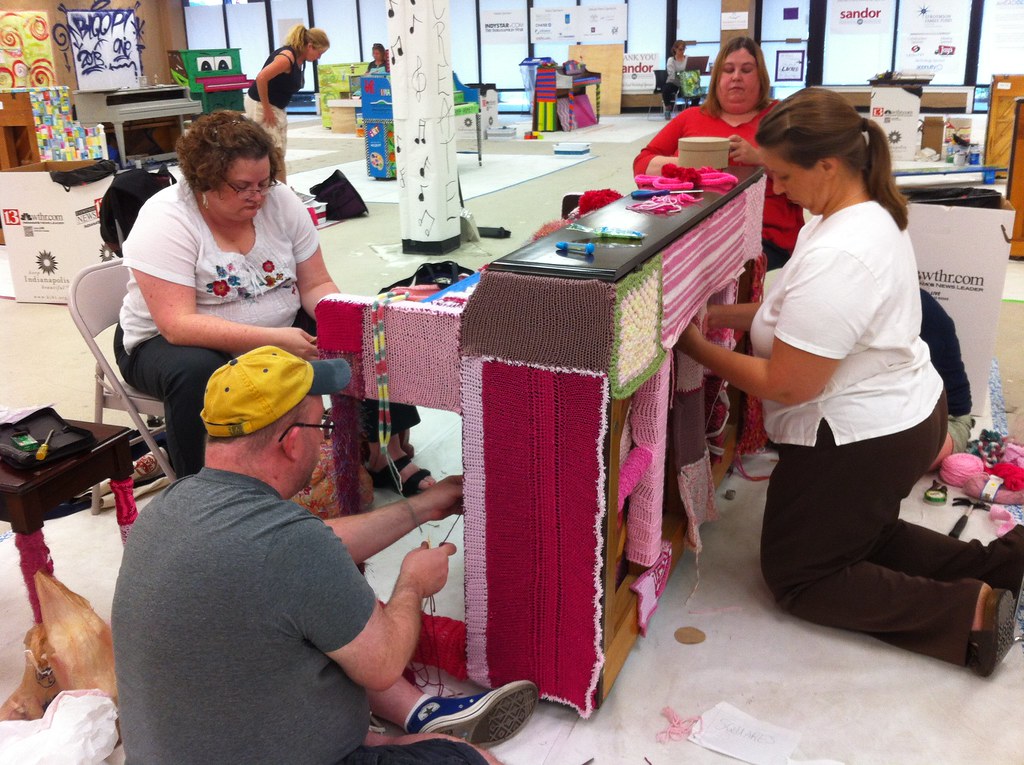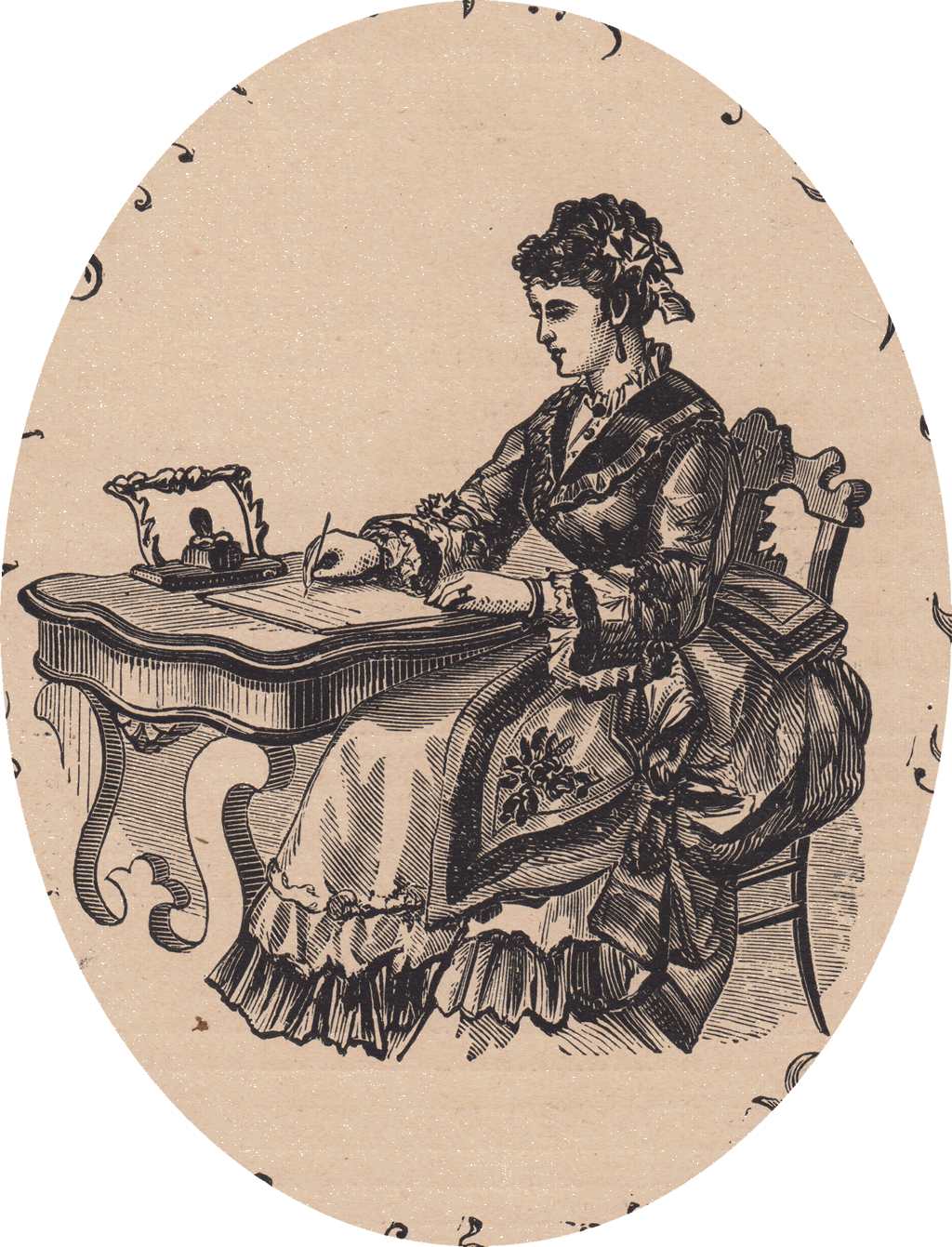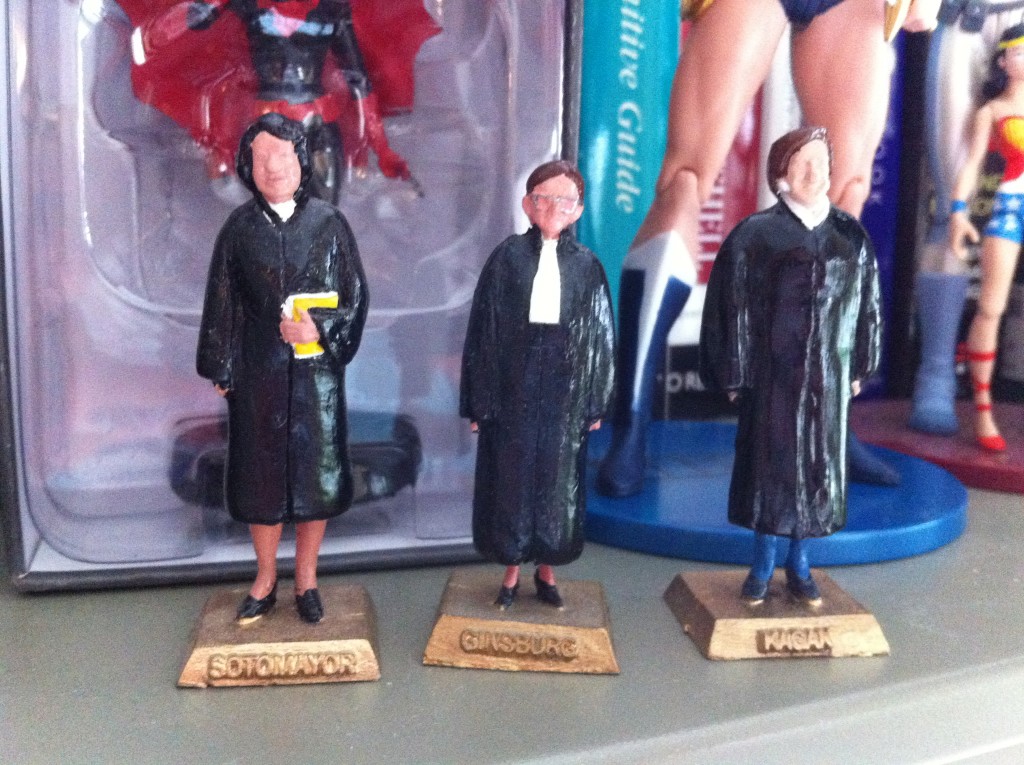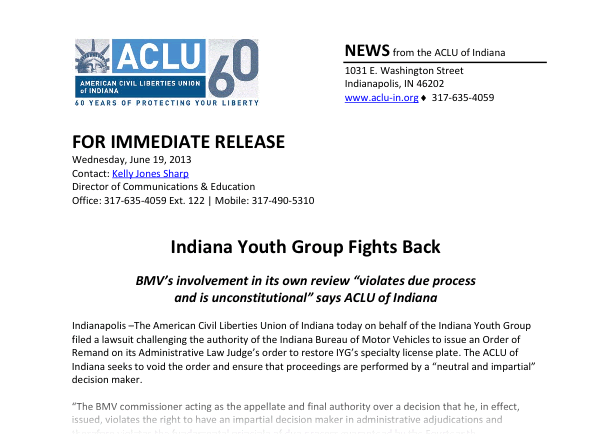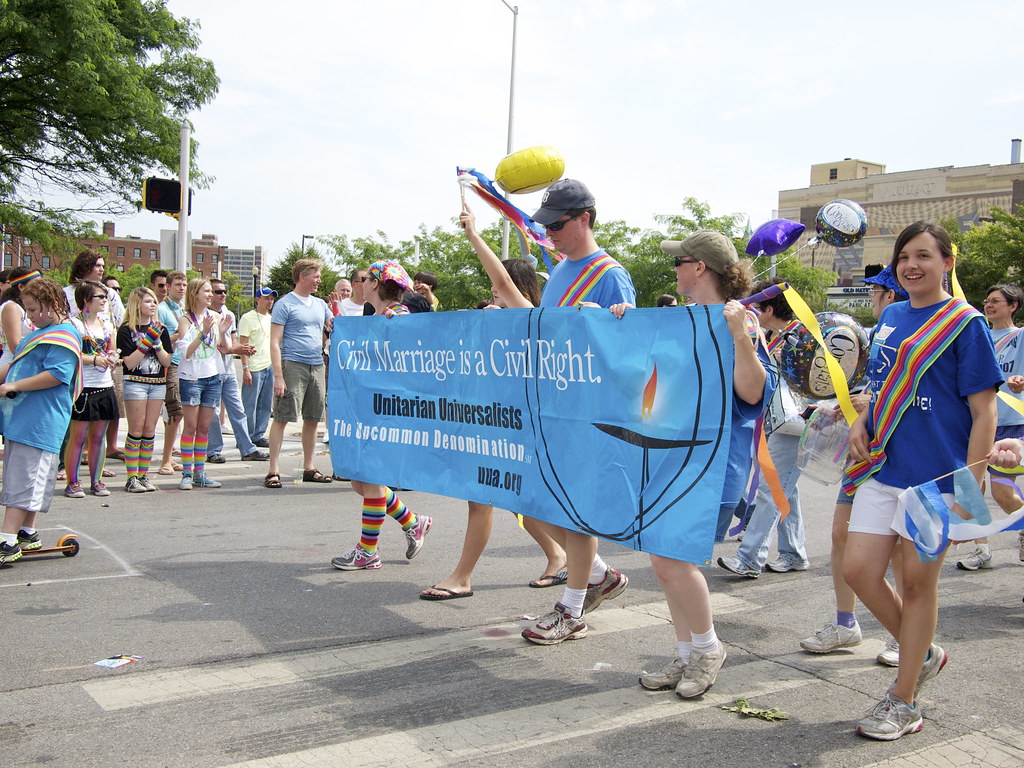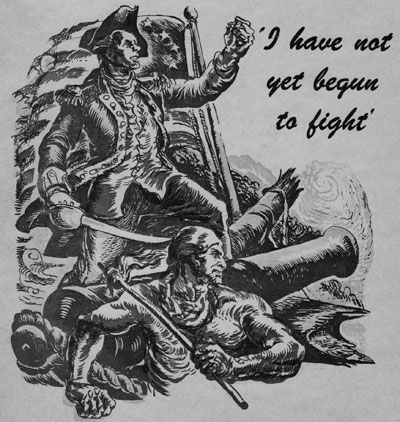
Both the ACLU (our friends!) and the Indiana branch of the American Family Association (not our friends at all!) are noting that the DOMA decision by the Supreme Court doesn’t have any direct effect on same-sex marriage in Indiana, according to the Indy Star.
Indiana has a law on the books banning same-sex marriage, and a marriage discrimination amendment (HJR-6) to the state constitution is currently half-way through the legislative process. It will need to be voted through the state legislature and approved by the governor a second time before it can go on Indiana’s ballot.
Technically, it is true that DOMA doesn’t have a direct effect, but the fall of (part of) DOMA is the an important domino to fall in achieving marriage equality in Indiana. The SCOTUS ruling on DOMA today means Indiana and other states where same-sex marriage is not yet recognized will have room to make a case for discrimination on the necessity reciprocity of the law from one state to another. The portion of DOMA that restricts recognizing same-sex marriages from one state in other states is still in place. But given today’s ruling, it’s hard to imagine that it will remain in place for very long, because even before the ruling came down, Supreme Court Justice Anthony Kennedy was asking pointed questions about DOMA being a question of gender discrimination.
In reality, the only serious barrier that remains now between married gay Hoosiers and legal marriage recognition is the state of Indiana and Hoosier opinion, not the Federal Government. They only thing stopping us now, realistically, is something that WE LGBT HOOSIERS can affect, and something that only we can affect. The fight is now up to us, and it’s a battle we can win, because it’s a battle for hearts and minds in Indiana, where we live, and where we can reach the fight. It’s no longer a fight across the country, or a fight in Washington, D.C. It’s a fight on our home turf.
Back in February Indiana lawmakers were saying that they wanted to wait on pursuing the second have of the Indiana Marriage Discrimination Amendment (HJR-6), because they wanted to see if the ruling was broad or narrow. They were being canny; they suspected that the courts would rule on a narrow change in DOMA and leave the rest of it in place. But I do think it’s a sign of something else as well.
I really believe that the will to tackle this by our State Legislators is going to wane rapidly, even though they are saying something different in the news this morning. I think that Republican lawmakers, even those in Indiana, are going to realize more fully in the days and weeks to come that they are in the wrong side of this fight, and that it’s not a question of if, but a question of when.
We have beat back this amendment several times over the years. Certainly that was with the help of powerful friends on the Democratic side of the aisle and we don’t have those numbers with us after the last several elections, but we do still have the power of large corporations in Indiana who have stood with us time and again because they understand that they can’t attract a strong workforce in an uneducated and intolerant state. I think if we can get some powerful visuals in place, the average folks in Indiana will start to make the idea unpopular.
As noted at the tail end of the Indy Star’s article on how DOMA affects us:
Ball State University’s Hoosier Poll last fall found Hoosiers evenly split over whether same-sex marriages should be legal. But a majority supported legalizing civil unions and opposed changing Indiana’s constitution to ban gay marriage.
The second sentence of Indiana’s Discrimination Amendment is what will kill the bill – “A legal status identical or substantially similar to that of marriage for unmarried individuals shall not be valid or recognized.” That goes towards animus, and falls afoul of today’s DOMA ruling. It will be the key to beating back this amendment in the state legislature next year, and falling short of that, changing the hearts of Hoosiers across the state.
